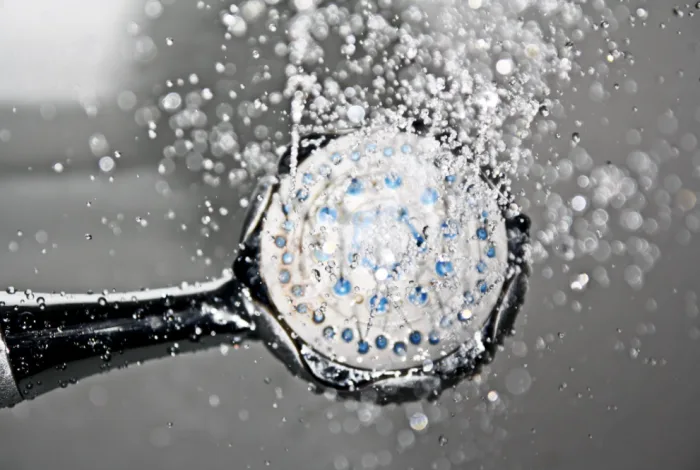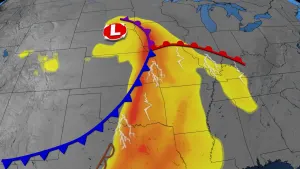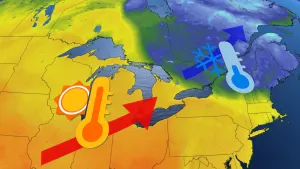
Man suffers life-threatening reaction to cold air after exiting shower
Cold allergies are rare, and serious reactions even moreso, health experts say.
A 34-year-old Colorado man suffered life-threatening anaphylactic shock after being exposed to cold air when exiting a shower, according to a recently-published report in the Journal of Emergency Medicine.
The man collapsed in his bathroom and broke out in hives, IFL Science reports. He was taken to his local emergency room by family, suffering from low blood pressure and shortness of breath and admitted to the intensive care unit for monitoring.
The patient eventually recovered after receiving oxygen and adrenaline.
The report describes the man's condition as "cold anaphylaxis," a potentially life-threatening event that is "occasionally described in the emergency medicine literature."
Family told medical staff the man had a history of being "allergic to cold weather," but in the past, he only experienced hives when exposed to the cold, a rare skin allergy called cold urticaria.
Suffering from an extreme reaction to the cold like anaphylaxis is even rarer, but it has been previously documented.
WHAT IS COLD URTICARIA?
According to the Mayo Clinic, people with the condition report a wide range of symptoms, ranging from mild itchiness to serious reactions like anaphylaxis or swelling of the tongue and throat.
"Cold urticaria symptoms begin soon after the skin is exposed to a sudden drop in air temperature or to cold water," the Mayo Clinic says on its website.
"Damp and windy conditions may make a flare of symptoms more likely. Each episode may persist for about two hours."
The condition may be tricky to self-identify because hives may not present every time a patient is exposed to the cold, the American Academy of Dermatology (AAD) says online.
For others, there may be specific triggers like swimming in cold water, cold wind or, like in the case mentioned above, exiting a shower.
Air conditioning and the freezer section of a grocery store can also provoke a reaction, the AAD says.
Rashes can be treated with antihistamines, but experts say it's better to try and prevent the rashes from occurring in the first place with the use of warm outdoor clothing that's warm and wind-proof.
Some patients may require prescribed medication to keep flare-ups under control.
If you think you have cold urticaria, consult a doctor, and seek emergency care if you suddenly develop a reaction to cold exposure.
Thumbnail image courtesy of Pixabay and Pexels.










